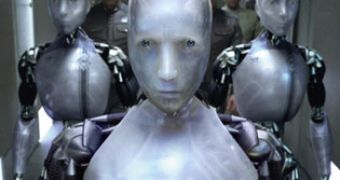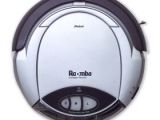You have probably seen, or at least heard of some movies that depict the never-ending theme of robots and their rebellion against humans, inferior beings, taking over the world, stuff like that. You'd probably think that after all these movies, people are terrified by robots and the thought that they might try to exterminate us.
Actually it's not like that at all. It seems many Americans embraced one particular robot and it started integrating to the families that purchased it. It's not Sony's AIBO - the first robot dog that recognizes words and objects - not even Honda's ASIMO - a humanoid robot that can walk on two feet in a manner resembling human locomotion.
It's actually a less sophisticated robot that gained acceptance throughout the world: Roomba, a robotic vacuum cleaner.
This little critter, in addition to being very practical, also affects the lifestyles, relationships and attitudes of families compared with the use of ordinary stick vacuums. Not only aren't people afraid of it, but for some people, it has become a member of the family.
How else would you explain these reactions: when a woman bumps into her disk-shaped robot and says, "Excuse me," or when a family names its vac "Robby" ? This behavior really tells you something about how people will adopt future robotic applications and how that might affect their design and function.
The widespread acceptance of this robot is not just a fluke. You can't call it a curiosity, or an accident, when the manufacturing company, iRobot Corp. reports sales of more than 2 million Roombas.
Jodi Forlizzi is an assistant professor of human-computer interaction and design at Carnegie Mellon University in Pittsburgh, and recently performed a study on the social impact of robots. She selected six families in Pittsburgh and Harrisburg and gave them either Roombas or a handheld stick vacuums with similar cleaning capacities. She asked family members keep diaries, take photos and check in with researchers periodically over the course of a year.
"The surprising thing to me was how much the Roomba changed the way that people cleaned," said Forlizzi. The 13-year-old daughter in one family almost literally adopted the Roomba, gradually "taking over" the vacuum and eventually moving it permanently to her bedroom.
It's possible that all these favorable emotional reactions mean that we're ready to accept robots in our lives and at the rate of their development, this may happen really soon.

 14 DAY TRIAL //
14 DAY TRIAL // 
